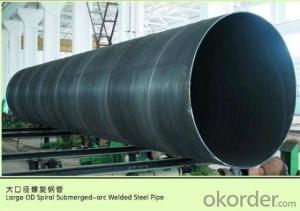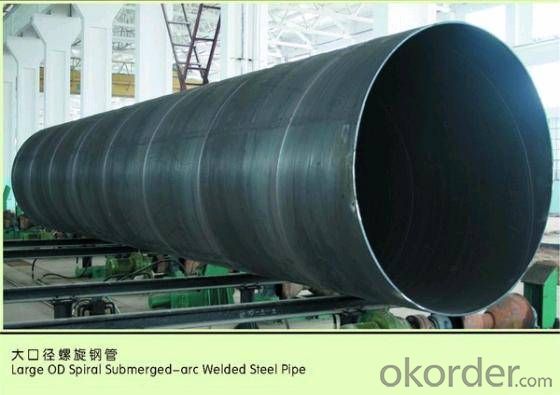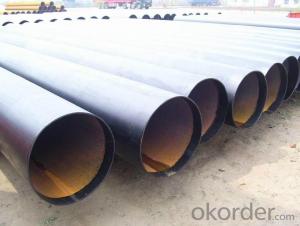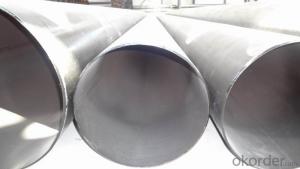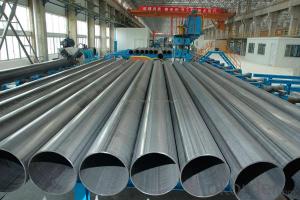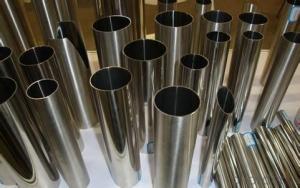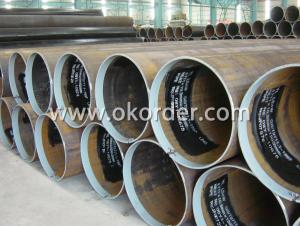LSAW SSAW CARBON STEEL PIPE ASTM API 5L PIPE LINE
- Loading Port:
- Tianjin
- Payment Terms:
- TT OR LC
- Min Order Qty:
- 1 m.t.
- Supply Capability:
- 3000 m.t./month
OKorder Service Pledge
OKorder Financial Service
You Might Also Like
Packaging & Delivery
Packaging Detail: | Normal exporting packing,in container or bulk vessel or as per clients' request |
Delivery Detail: | 2 months after confimed contract |
Specifications
Large Diameter API 5L X70 PSL2 LSAW Steel Pipe
Grade: X42, X46, X50, X52, X60, B, C
OD: 1.5"-28"
WT: SCH10-SCH160
Large Diameter API 5L X70 PSL2 LSAW Steel Pipe
Specifications:
u Standard: API 5L
u Grade: B, C, X42, X46, X50, X52, X56, X60, X65, X70, X80
u OD: 1.5"-28"
u WT: SCH10-SCH160
u Length: 5-12m
u Ends Finish: plain end, bevel end, grooved end
u Surface Treatment: bare, black varnished, oiled finish, red color, anti-corrosion, 3PE, FBE or epoxy coating
u Technique: hot rolled or cold drawn
u Application: api 5l steel pipe for conveying oil, water, gas
u Invoicing: based on theoretical weight or actual weight
u Payment Terms: L/C at sight, T/T or Western Union
u Trade Terms: FOB, CFR, CIF
u Certification: ABS manufacturing assessment, ABS design assessment, API 5CT, API 5L, DNV manufacturer certificate, ISO9001 quality management system certificate, ISO14001 environment management system certificate, GB/T28001 occupational health and safety management system certificate, A1 class manufacturing license of special equipment certificate, CCS, GL, LR, SGS, TüV, PDE
- Q: What is the theoretical weight per square meter of the steel pipe diameter of the outer frame and the thickness of the tube wall 3mm 48mm?
- Dimensions of ordinary steel tubes (taken from GB/T 17395-1998)The theory of weight / (kg/m) | wall thickness (2.9 3.0mm: 3.33)
- Q: What is the role of steel pipes in the construction of bridges and tunnels?
- Steel pipes play a vital role in the construction of bridges and tunnels as they provide structural support and durability. They are commonly used for the fabrication of the framework and foundation of these infrastructures. Steel pipes offer high tensile strength, corrosion resistance, and the ability to withstand heavy loads, making them an ideal choice for ensuring the integrity and longevity of bridges and tunnels. Additionally, steel pipes can be easily welded, allowing for efficient and cost-effective construction methods.
- Q: What is the difference between steel pipes and copper-nickel pipes?
- Steel pipes and copper-nickel pipes differ in material composition and properties. Steel pipes are primarily made from iron and carbon, which provide strength and durability. They are suitable for various applications, including plumbing, construction, and industrial purposes. On the other hand, copper-nickel pipes are composed of a combination of copper and nickel, which offer excellent corrosion resistance and thermal conductivity. These pipes are often used in marine environments, desalination plants, and offshore oil and gas industries due to their ability to withstand saltwater corrosion. Overall, the main distinction lies in their composition and specific applications based on their unique properties.
- Q: What is the role of steel pipes in the food processing industry?
- Steel pipes play a crucial role in the food processing industry as they are used for various applications such as conveying fluids, gases, and other materials throughout the production process. These pipes are resistant to corrosion, have high strength, and can withstand extreme temperatures, making them ideal for transporting food products safely and hygienically. They are widely used for transporting water, steam, and other liquids, as well as for transferring ingredients, such as grains, oils, and sauces. Additionally, steel pipes are utilized in the construction of food processing equipment, such as mixers, blenders, and storage tanks, ensuring the durability and integrity of the entire production system.
- Q: How are steel pipes protected against fire hazards?
- Steel pipes can be protected against fire hazards through various methods such as applying fire-resistant coatings, installing fire-rated insulation, and implementing fireproofing measures such as fire sprinkler systems. Additionally, proper fire safety protocols, including regular inspections and maintenance, can contribute to preventing and minimizing fire hazards in steel pipes.
- Q: Can steel pipes be used for culvert applications?
- Indeed, culvert applications can utilize steel pipes. The utilization of steel pipes for culverts is widespread owing to their exceptional endurance, robustness, and immunity to corrosion. They possess the capability to endure substantial burdens, accommodate extensive traffic flow, and manage large water surges. Furthermore, steel pipes can be effortlessly fabricated in diverse dimensions and configurations to cater to specific culvert prerequisites. Their prolonged lifespan and minimal upkeep demands render them a cost-efficient alternative for culvert applications.
- Q: Can steel pipes be used for bridge piling?
- Yes, steel pipes can be used for bridge piling. Steel pipes provide several advantages for bridge piling, such as high strength, durability, and resistance to corrosion. They can be driven deep into the ground to provide a stable foundation for the bridge structure, making them a suitable choice for bridge piling applications.
- Q: What are the different sizes available for steel pipes?
- Steel pipes are available in a wide range of sizes, ranging from small diameters as small as 1/8 inch to larger diameters exceeding 72 inches. The sizes of steel pipes are typically measured based on their outside diameter (OD) and wall thickness, with various standard sizes available to meet different application requirements.
- Q: How do you prevent steel pipes from freezing in cold climates?
- To prevent steel pipes from freezing in cold climates, it is important to insulate the pipes properly. This can be done by wrapping them with insulation sleeves or foam, which helps to retain heat and prevent rapid temperature changes. Additionally, ensuring that there is proper ventilation in the area where the pipes are located can help to maintain a higher temperature and prevent freezing.
Send your message to us
LSAW SSAW CARBON STEEL PIPE ASTM API 5L PIPE LINE
- Loading Port:
- Tianjin
- Payment Terms:
- TT OR LC
- Min Order Qty:
- 1 m.t.
- Supply Capability:
- 3000 m.t./month
OKorder Service Pledge
OKorder Financial Service
Similar products
Hot products
Hot Searches
Related keywords
